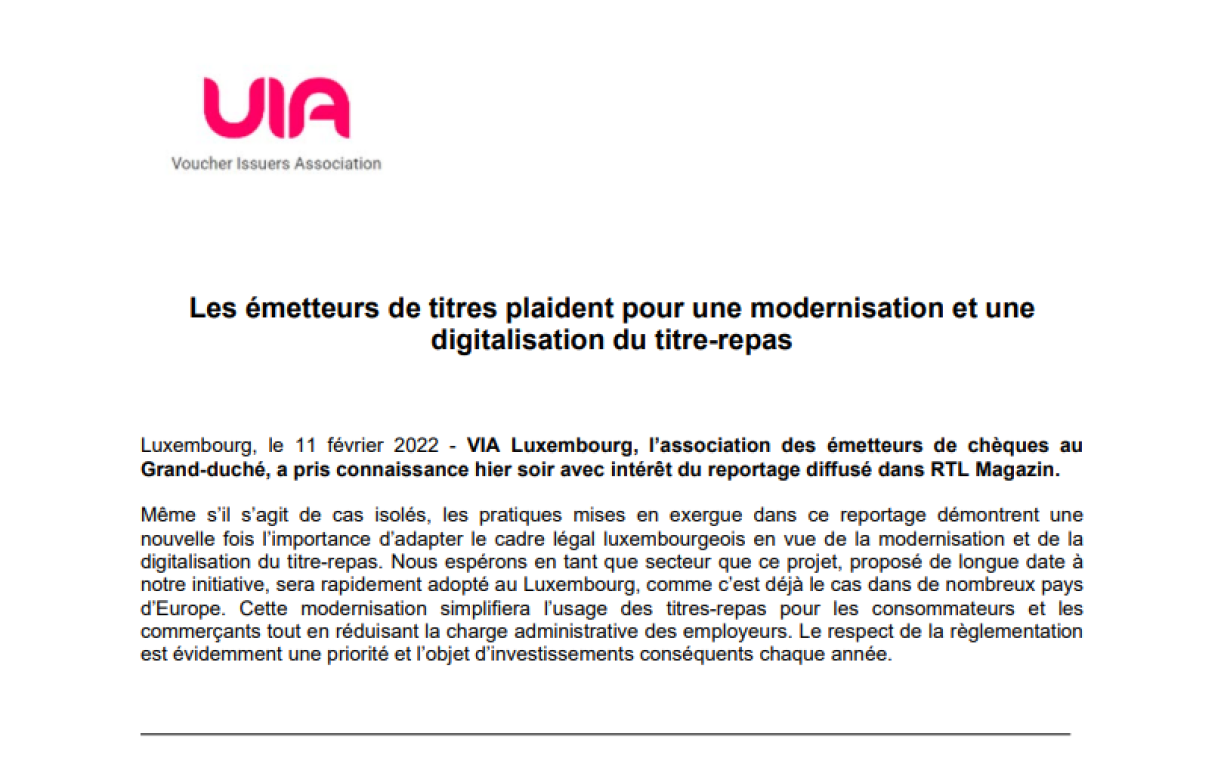
The “chèques-repas” vouchers are designed to be used for meals over the course of the working day, both in the form of a restaurant meal, or takeaway food, in line with the Grand Ducal regulation of 1986.
However, as RTL demonstrated in a TV segment on Thursday evening, the vouchers can be subjected to misuse. Undercover reporters with hidden cameras found that many shops permitted them to exchange the vouchers for other goods, including Bluetooth speakers or batteries, instead of food.
The misuse represents a potential loss of state finances, as a large proportion of the vouchers’ value is tax-free. For employers, up to €8.40 per voucher is tax-free as long as the business lacks a canteen and if the employer pays €2.80 towards the voucher themselves.
The Ministry of Finance said they were aware of the issue, and the voucher scheme would be reworked later this year with a view to amending the law. A spokesperson told RTL the current rules for purchases using the vouchers were too broad, which permitted some stores to accept the vouchers as payment for non-food items. The coalition agreement stipulates a modernisation of the system, and the Ministry said it was working on reforms to the 1986 law which should come into force later this year. There have also been discussions with the sector on the use of the vouchers.
The Voucher Issuers Association (VIA) Luxembourg, which represents the companies Sodexo and Edenred, who sell the vouchers, also responded to RTL’s undercover report. VIA said the report highlighted the significance of reviewing the existing legal framework and the need to adapt to the digitisation of the vouchers.

RTL-News: Zweckentfriemung vu Chèque repas - RTL confirméiert mat verstoppter Kamera